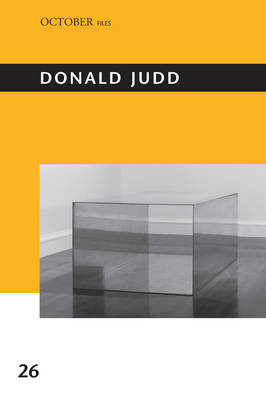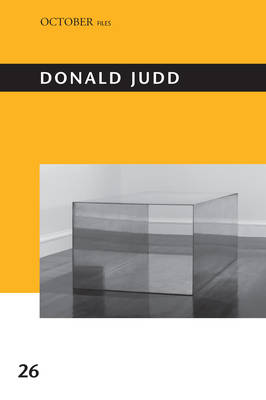
- Retrait gratuit dans votre magasin Club
- 7.000.000 titres dans notre catalogue
- Payer en toute sécurité
- Toujours un magasin près de chez vous
- Retrait gratuit dans votre magasin Club
- 7.000.0000 titres dans notre catalogue
- Payer en toute sécurité
- Toujours un magasin près de chez vous
72,95 €
+ 145 points
Format
Description
Artists, architects, art historians, critics, and curators explore the work of Donald Judd as both artist and critic in essays spanning all of Judd's career. Donald Judd (1928-1994) is one of the most influential American artists of the postwar era. Beginning in the 1960s, he developed new ideas about art--in both his works and writings--that challenged many of modernism's core tenets by resisting the categories of painting and sculpture. Judd described this work as specific objects. Critics labeled it minimalism. Perhaps because Judd's own critical writings provide a discursive framework for his work, some of the monographic essays on his work are not widely known. This volume collects critical and scholarly writings on Judd, examining his work as both artist and critic.
Spécifications
Parties prenantes
- Auteur(s) :
- Editeur:
Contenu
- Nombre de pages :
- 224
- Langue:
- Anglais
- Collection :
Caractéristiques
- EAN:
- 9780262044509
- Date de parution :
- 02-02-21
- Format:
- Livre relié
- Format numérique:
- Genaaid
- Dimensions :
- 160 mm x 231 mm
- Poids :
- 576 g

Les avis
Nous publions uniquement les avis qui respectent les conditions requises. Consultez nos conditions pour les avis.






